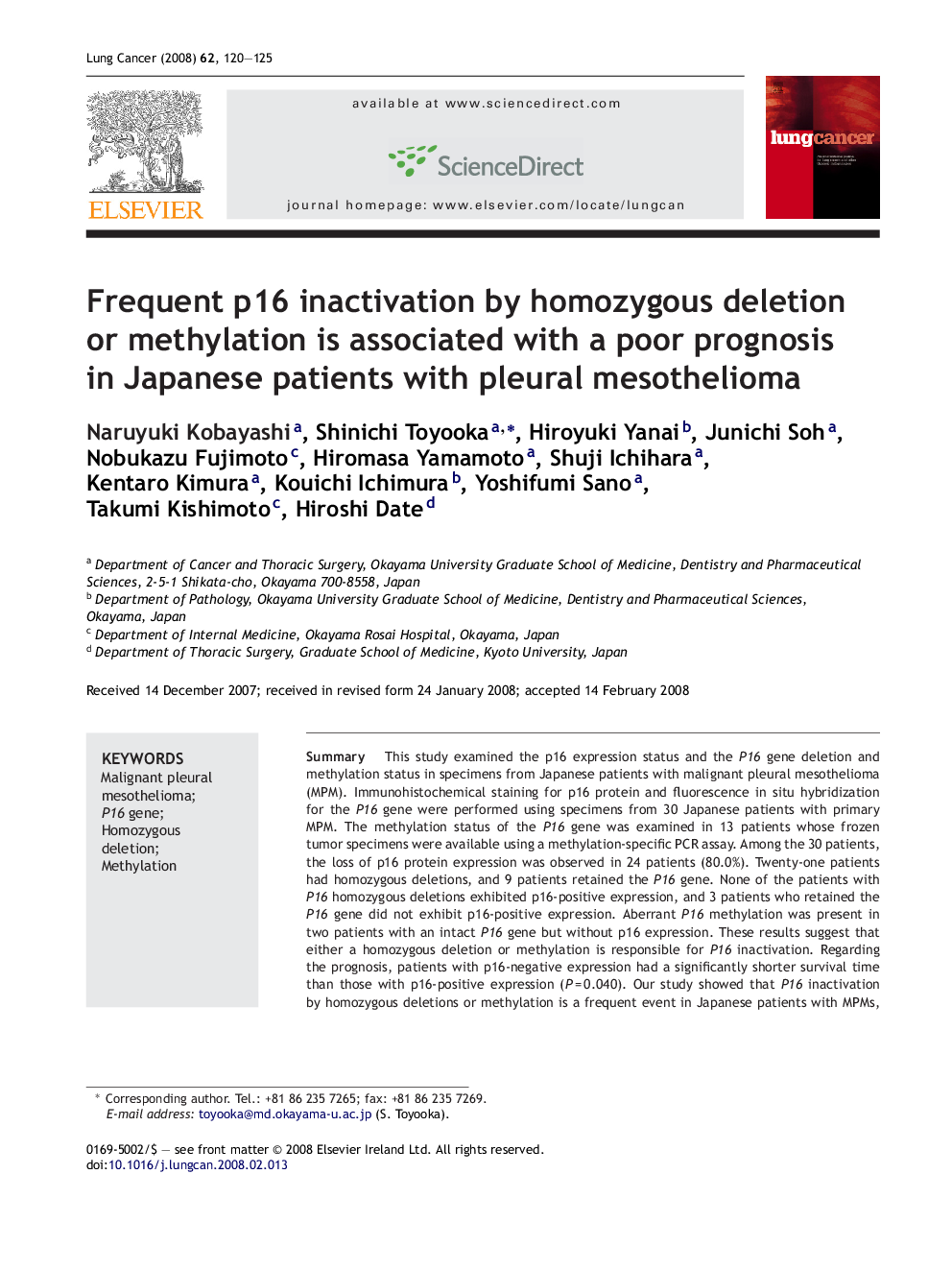| Article ID | Journal | Published Year | Pages | File Type |
|---|---|---|---|---|
| 2143247 | Lung Cancer | 2008 | 6 Pages |
SummaryThis study examined the p16 expression status and the P16 gene deletion and methylation status in specimens from Japanese patients with malignant pleural mesothelioma (MPM). Immunohistochemical staining for p16 protein and fluorescence in situ hybridization for the P16 gene were performed using specimens from 30 Japanese patients with primary MPM. The methylation status of the P16 gene was examined in 13 patients whose frozen tumor specimens were available using a methylation-specific PCR assay. Among the 30 patients, the loss of p16 protein expression was observed in 24 patients (80.0%). Twenty-one patients had homozygous deletions, and 9 patients retained the P16 gene. None of the patients with P16 homozygous deletions exhibited p16-positive expression, and 3 patients who retained the P16 gene did not exhibit p16-positive expression. Aberrant P16 methylation was present in two patients with an intact P16 gene but without p16 expression. These results suggest that either a homozygous deletion or methylation is responsible for P16 inactivation. Regarding the prognosis, patients with p16-negative expression had a significantly shorter survival time than those with p16-positive expression (P = 0.040). Our study showed that P16 inactivation by homozygous deletions or methylation is a frequent event in Japanese patients with MPMs, relating to poor prognosis. Homozygous deletion is the major cause of P16 inactivation, but methylation also lead to the inactivation of P16 when the P16 alleles are retained.
